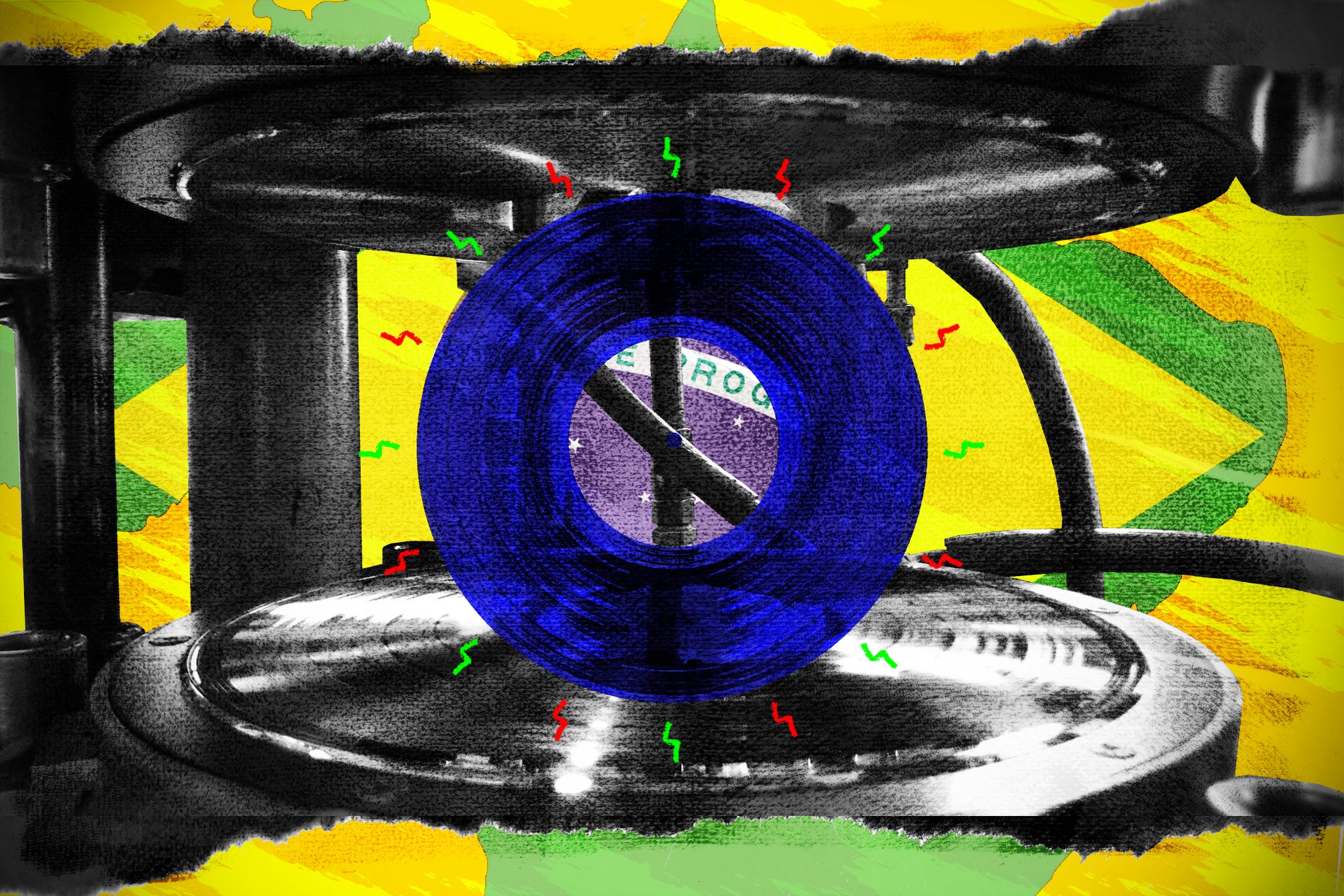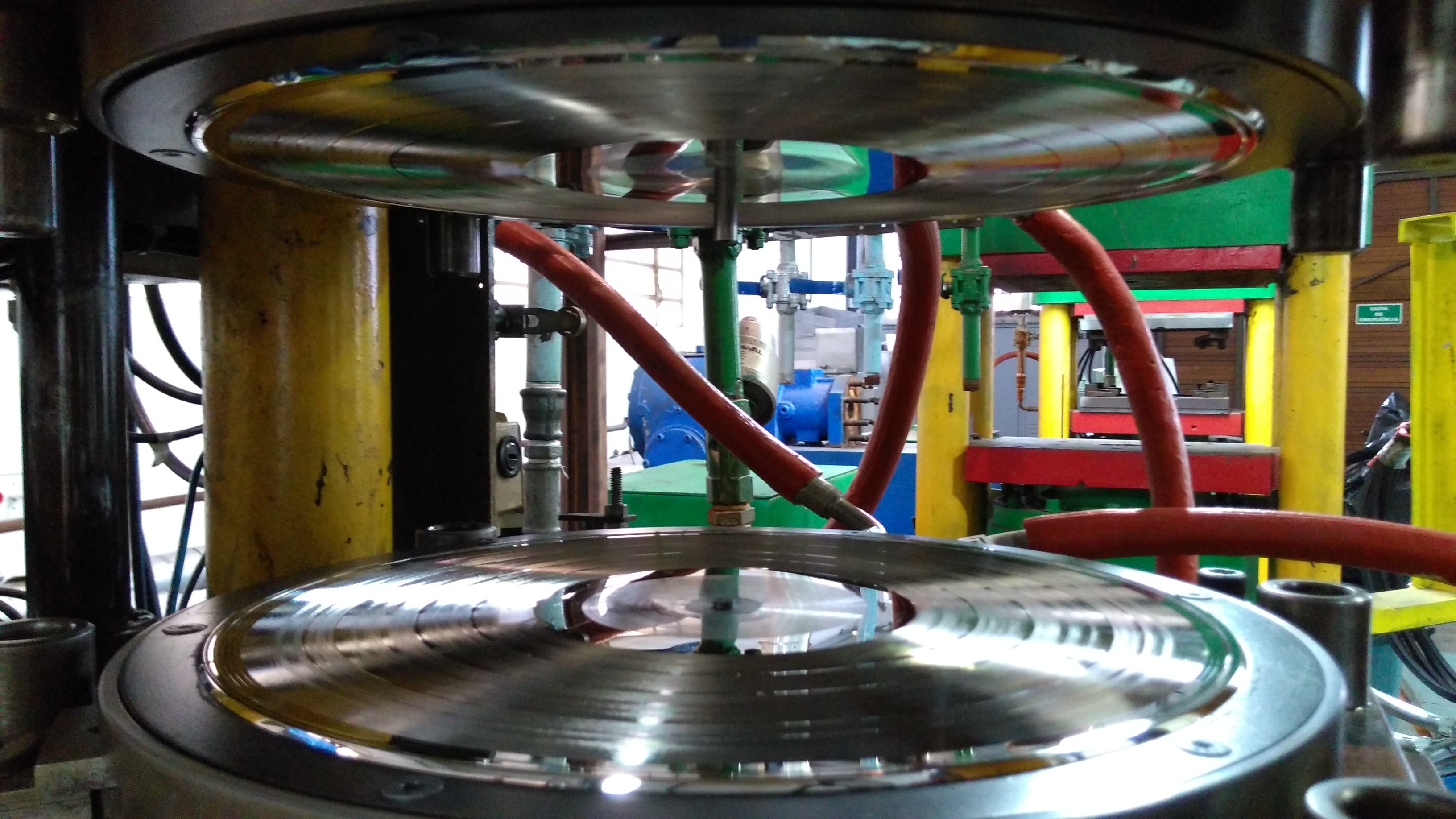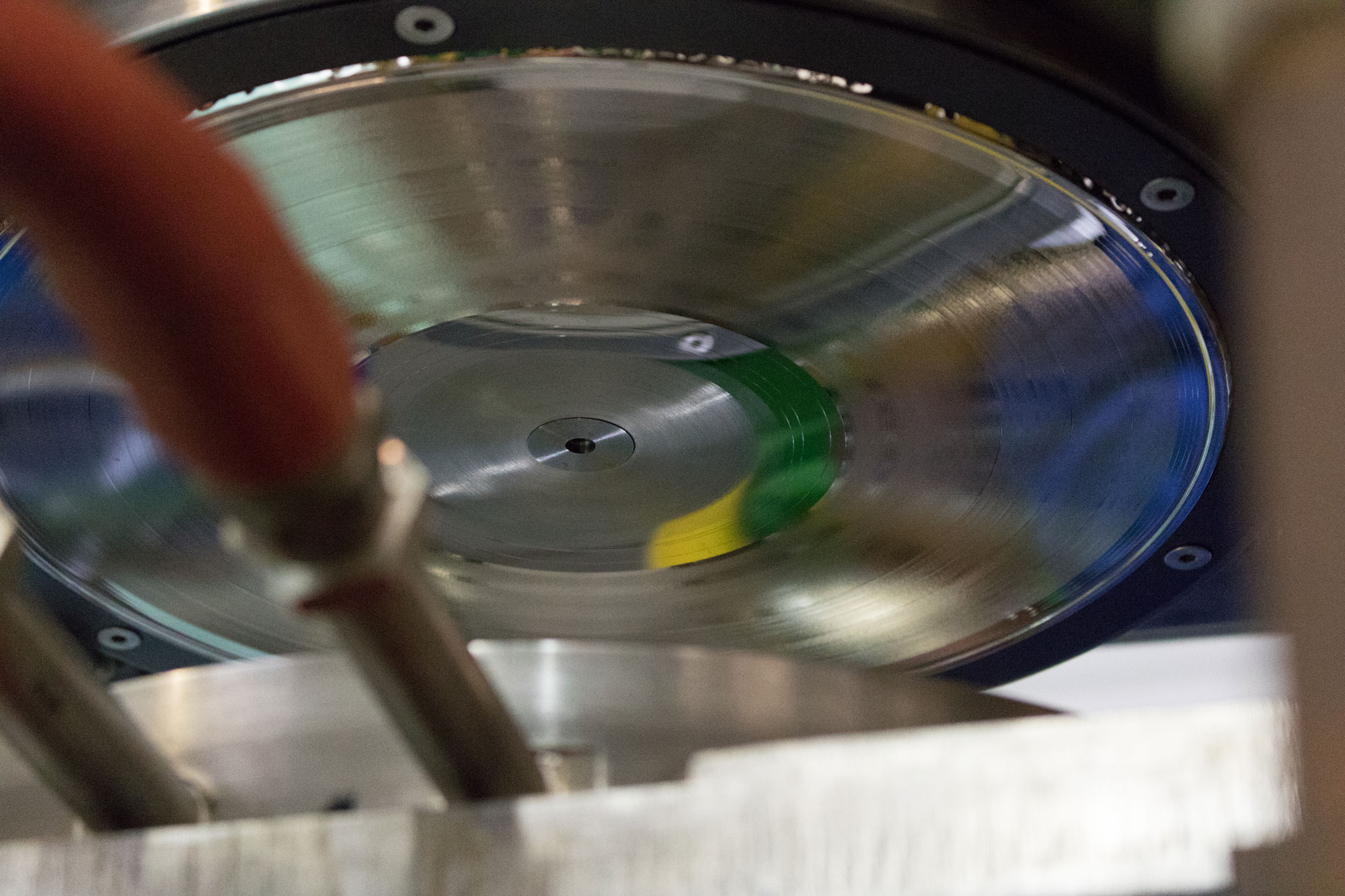 Scene reports
Scene reports
We went to the vinyl factory that's kickstarting Brazil's homegrown vinyl scene
Vinil Brasil is bringing the music back home
We’re surveying 2017 across a series of features. Next up: a profile of Vinil Brasil, the São Paulo pressing plant that’s crucial to the country’s scene
São Paulo is the largest city in the Southern Hemisphere, home to over 20 million people. From the outside, the city is often overshadowed by its sexier, more photogenic little sister, Rio de Janeiro, but for Brazilians there’s no doubt that ‘Sampa’ is their financial and cultural capital. A magnet for peoples from all corners of this huge country, it’s here that Brazil meets itself, and then meets the rest of the world.
This unique melting pot means that, for music lovers, it’s something of a promised land. A long-established destination for diggers, São Paulo is dripping with vinyl. Without even looking, you’ll see the black stuff changing hands on every street corner in this vast city (quite literally in the case of Centro’s innumerable street vendors). So it’s surprising that none has been made here in almost 20 years. Not a single disc, not even a 7”, pressed since the last vinyl plant shut down in the late 90s.
But that’s changing. In mid September, Brazil’s newest pressing plant began production. Aptly named Vinil Brasil, the factory is located in Barra Funda, a traditionally industrial yet slowly gentrifying area to the west of downtown São Paulo. Alongside Rio de Janeiro’s Polysom, Vinil Brasil is now the second pressing plant in South America and, once running at full capacity, is set to quadruple production on the continent.
Vinil Brasil sits behind an unassuming facade, on a street that embodies the polarity of São Paulo. On one side, factories, garages and crumbling warehouses, on the other, a row of 30-storey gated apartment blocks with 24-hour doormen. After a comprehensive tour of the factory we sat down with founder Michel Nath to understand the dual challenges of opening a business during the worst recession in Brazilian history and reviving an industry that has lain dormant for nearly two decades.

Michel, despite the rebirth of vinyl and increasing demand globally, this a crazy time to be starting a business in Brazil…
I know, right?! Vinyl is a difficult industry regardless of the location. I would say, however, here in Brazil it’s at least ten times more difficult than anywhere in the world right now. Everything we’re doing here at Vinil Brasil goes completely against the tide. Brazil is in the midst of the largest recession in our history; economic crisis, socio-political crisis, unemployment, high taxes, import/export problems... I could go on. Our whole national industry is in crisis and this affects us at Vinil Brasil too. Even on a micro scale, there’s times when I go out to buy small parts for the machines, I’ll spend half a day looking and eventually I'll find a nice guy who can sell me the part. Then I go back a few weeks later, that same guy is not there anymore, they tell me he’s gone bust.
Given the difficulties then, where does your motivation come from?
Brazilian music is our greatest gift to the world. All the great vinyl production done in Brazil in the 50s, 60s, 70s, our ‘precious stones’, those records are not here anymore. They’re in Japan, USA, Germany and the UK and what we’re left with is the bad vinyls, the worst quality, most scratched and warped - and yet still we have the highest prices. Our culture built those vinyls and that’s not fair, but I’m not saying it’s the responsibility of the Japanese people or any other - they came here, they loved the music, they really respected the culture and they had the means to buy. The problem is, that at that same time Brazilians were having to choose between buying a record or putting food on the table, so we sold ourselves short.
So it’s about levelling the playing field?
Vinil Brasil is a kind of resistance. In the great game of the planet, Brazil has always been a colony and we still suffer as one. Whether it's coffee, cotton, sugar or art, what's made here has always been taken away and then sold back to us at an inflated price. Here at Vinil Brasil, I want to give us the opportunity to make the final product here. People say to me, “Oh but the price of vinyl is going to go down now you’ve opened a factory here” and I say good, I’m working towards that! My dream is to make albums that cost $R20 (£5.50) in Brazil. I don’t want people to have to choose either to make rent or buy a few albums.
So actually building a vinyl factory, how did you begin?
The seed of the factory is my own album ‘SolarSoul’; it all starts from there. Back in 2014, I was having issues getting it pressed onto vinyl. It was delayed nine months, there was an endless back and forth, it was a really frustrating process getting the discs way from out there in Europe, to here in my two hands. During this time I started talking with friends and other musicians about what could be done to improve conditions for vinyl production here in Brazil.
Did this feel like a natural step for you, having spent a lot of your life working with music and vinyl in some way?
In a way, yes. It’s become the next phase of my life within music, but mostly it just didn’t make any sense to me that we didn’t have a factory here. Brazil is the one of the most musical countries in the world and São Paulo is our most musically diverse city, I didn’t like that my record had to be made abroad. I’m a DJ, a musician and a poet but that didn’t necessarily make me the person for this - if you like drinking beer are you gonna open a brewery? If you like driving cars are you going to start manufacturing them? No, one thing has nothing to do with the other. What motivated me was that I had this opportunity to do something about the state of affairs here in Brazil, I could help myself, help people around me and future generations.

What’s the story of the machines - these presses were reclaimed from a scrapyard?
It was October 2014, at the exact moment that my vinyl was finally ready, I became aware of these presses and saw the opportunity. From 1992 onwards, vinyl factories began to close down in Brazil and by the end of the 90s there was pretty much nothing left. Each factory had a different destiny, most were destroyed, taken apart, sold for scrap, a whole industry dismantled. In the case of our presses, they come from Continental. They spent 20 years dormant, abandoned in the factory where they lived and worked. Then when the building was due to be demolished they were moved to a scrapyard where they spent a year rusting in the open air - that’s where I found them.
You’d have to be crazy to think you could make a factory out of that right?! They were messed up, mouldy, covered in rust but I thought hey, here’s some machines and they’re Hamilton's, the very best American machines made with British engineering. They were built in 1953/54 and built to last. On Friday we went to the scrapyard and thought, OK there might be something here. Then on the Tuesday, walking down the very street I was born on here in Barra Funda, I walked passed this freshly painted garage door, with a big sign saying ‘For Rent’ and I thought, yeah, let’s do this.
The machines stayed in that garage for nine months - my gestation period - before we moved to our current site a few blocks away. This street we’re on now is actually named after the pastor who baptised me.
You originally aimed to open at the start of last year, right?
Yes, we announced the project in January 2016, since then it’s been coming together but we’ve had a lot of challenges. You have no idea, people thought I must have forgotten to press a button or something. I still can’t quite believe it’s here, everyday I think I must be dreaming, this must be an illusion. We’ve currently have two of the presses up and running - a 12” and 7” - the idea is that from now on those machines don’t stop. The other two in situ are being calibrated and we’ve got plans for expansion for a further three presses in the future.

You’ve also reclaimed some original mastering equipment?
I had originally thought that maybe in a few years when the factory is up and running I’ll have a look for something like this. When word got out I was doing the factory, you can imagine lots of people saw it as their chance to offload any old audio machines on to me, but this was really different. It came from the RCA plant: when the factory shut down they sold this kit on but it hadn’t been used since. So the equipment was dismantled but in perfect condition. I never imagined we’d own anything like this, it means we have complete control over the sound and can produce the highest quality discs here. But that brings challenges too: we need our clients to understand the process so they can bring us high quality audio. People need to know that playing loud is not the same as playing well, so one of our missions here is education. Our website, for example, is much more than a regular site or store. We’re trying to share our knowledge to create understanding about how this all works. People can’t just show up here with their records and expect a miracle, it needs to be perfect at every level of production.
You mentioned earlier those 'precious stones’ of the 60s and 70s Brazilian production, you must have a view on the growing trend for the reissuing of those classics, the majority of which is being done by foreign labels?
I spent many years working as a DJ and what’s crazy for me is that when I look for certain tracks, I go on the internet on Discogs, and to find that music at an affordable price I have to buy from Mr. Bongo and have it shipped from London?! Come on man, this is my culture! I’m not speaking badly of them, I think it’s great the music is being valued, they are beautiful records, I thank them and I have a lot of respect for them. It’s not a problem that it’s happening outside of Brazil, the problem is that people don’t have the ability to do it here. We need to be able to produce and release our own culture. We need to wake up and take things back into our own hands. So the answer is to create a new reality, a new culture of appreciation here in Brazil and re-education of our people as to the value of things.
What have been some of your big releases so far? Anything to recommend?
We’ve done some really important albums, Elza Soares’ ‘A Mulher do Fim do Mundo’ is amazing. The disc is full of emotion from the beginning to the end, there’s a really tight band, incredible arrangements, it’s a perfect blend of samba and punk, soft and hard, delicate and fierce. And Elza is a formidable woman, a force of nature, a true muse. She recorded it at nearly 80 years old, the album is her blowing a kiss in the face of mortality. It’s completely timeless.
But everybody knows Elza Soares. I really want to recommend something most people probably won’t have heard yet, like NASCA’s ‘Supersimetria’. Otto Nascarella is the brains, heart and soul behind the Afrobeat group Saravah Soul. ‘Supersimetria’ is his solo album, it’s amazingly sophisticated grooves and lyrics, it’s one of the best masters we’ve received.
Bonnie Forrest is a freelance writer. Follow her on Twitter


